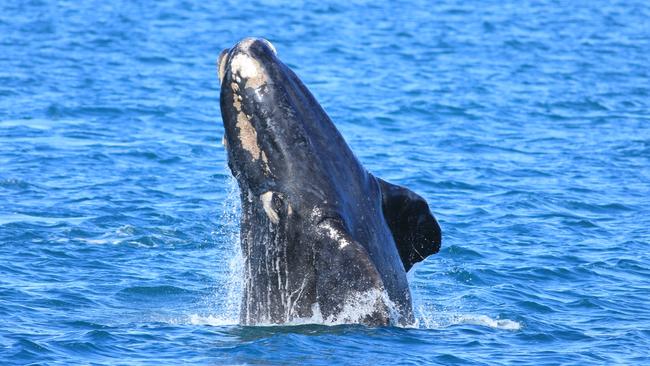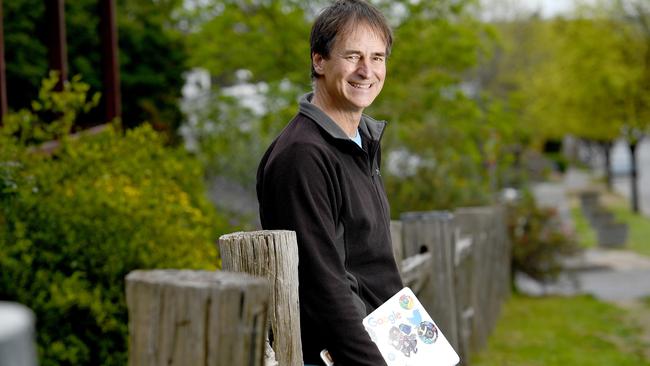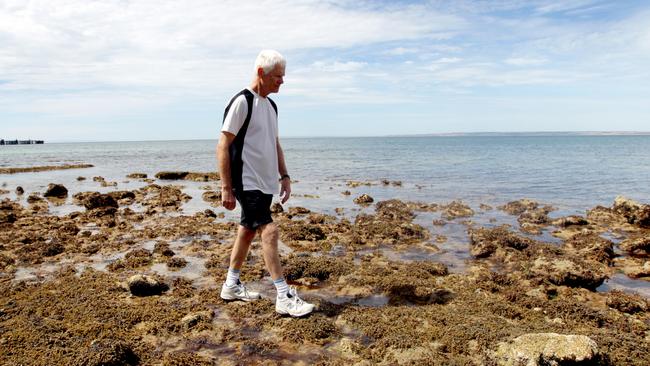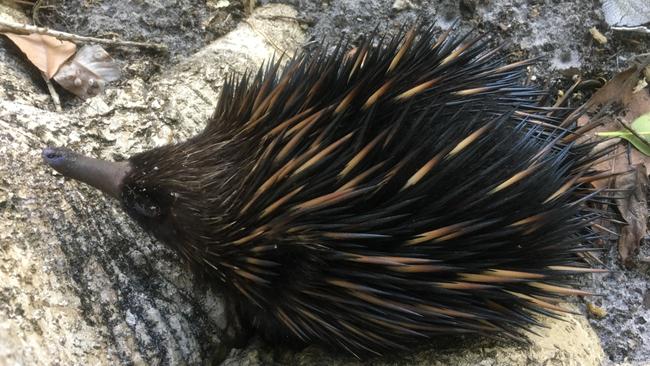1300 voices: Whale danger, road safety woes among concerns in KI seaport debate
Whales and dolphins would be threatened while an abalone farm faces “extreme risk” from a new seaport at Kangaroo Island, locals have claimed.
- KI: Fears SA’s wild places will be ‘chipped away’ by private threats
- Australian Walking Company’s KI plans head to Supreme Court
- Kangaroo Island seaport plan sparks concern about whales, dolphins
Danger to whales and other animals, extra trucks trundling down roads and an “extreme risk” to the future of an abalone farm are among worries raised over a new port on Kangaroo Island.
The State Government has publicly released more than 1300 submissions responding to plans for the Smith Bay seaport.
Kangaroo Island Plantation Timbers says the seaport will add more than $60 million each year to the island’s gross regional product.
The project, costing more than $35 million, will create work for 270 people.

Various environmental groups have raised concerns about its potential to threaten southern right whales, dolphins and a range of other animals. The company’s environmental impact statement shows it would result in the loss of about 10ha of habitat.
Among them was AusOcean’s Alan Noble, who said the development would “irrevocably damage” Smith Bay’s “pristine” environment.
Kangaroo Island/Victor Harbor Dolphin Watch co-ordinator Tony Bartram said following a 40 per cent decrease in the southeastern population of southern right whales, the species now faced a “high likelihood of extinction” and the seaport presented a further threat.

“The effects of diminished water quality due to dredging and consequent sea grass loss, the impacts of toxicity, the stress created by noise during construction and operations, the potential for vessel strike … the list goes on,” Mr Bartram said.
“The solution is extremely simple — move the proposed port elsewhere.”
Australian Abalone Growers Association executive officer Nicholas Savva said the seaport posed an “extreme risk” to the neighbouring Yumbah Aquaculture abalone farm.
“Seaports of this scale and aquaculture in such immediate proximity cannot successfully coexist,” Mr Savva said.
The local council’s chief executive Greg Georgopoulos said it was a “real” possibility the project could force Yumbah’s closure.

“Smith Bay is further away from the product (supply) end than desirable or necessary and (the project) will impose a legacy of continual operation of logging trucks in the central island zone … that is dangerous, costly and unnecessary,” Mr Georgopoulos said.
Among the animals at risk was the Kangaroo Island echidna. The company’s impact statement estimated between six and 21 echidnas would be killed by trucks each year.
It would “offset” these deaths by contributing to a program to reduce feral cats and using “high productivity vehicles”.
Writing on behalf of the Stokes Bay Hall community, Kate and Richard Stanton said the seaport would change the island “in a bad way”.
“The trucks will be a disastrous thing to live amongst and the thought of losing the road improvements we have spent a lifetime working towards is very upsetting,” the couple said.
But Pat Groenhout, of forestry management services company PF Olsen, said the seaport would become a “flagship facility” for the local and SA economies.

“It is also suitable for the establishment of handling areas for other cargoes that will no doubt in time make use of the port, such as bulk fertiliser (and) grain export,” Mr Groenhout said.
“It will also offer the ability for young school leavers to obtain highly skilled work and long-term security on Kangaroo Island.”
Kangaroo Island Plantation Timbers executive director John Sergeant said of the 1372 submissions, more than 1000 were form letters.
The company was considering changes that would reduce its environmental footprint, and the project would have no impact on Yumbah, he said.
He hoped forestry roads would gradually be upgraded to help them carry more traffic.
Mr Sergeant said Smith Bay was the best place for the project because it was the westernmost level site adjacent to deepwater, which was not in a marine park.
The company hopes the project will win approval in the coming months, so work could begin in summer.
michelle.etheridge@news.com.au
